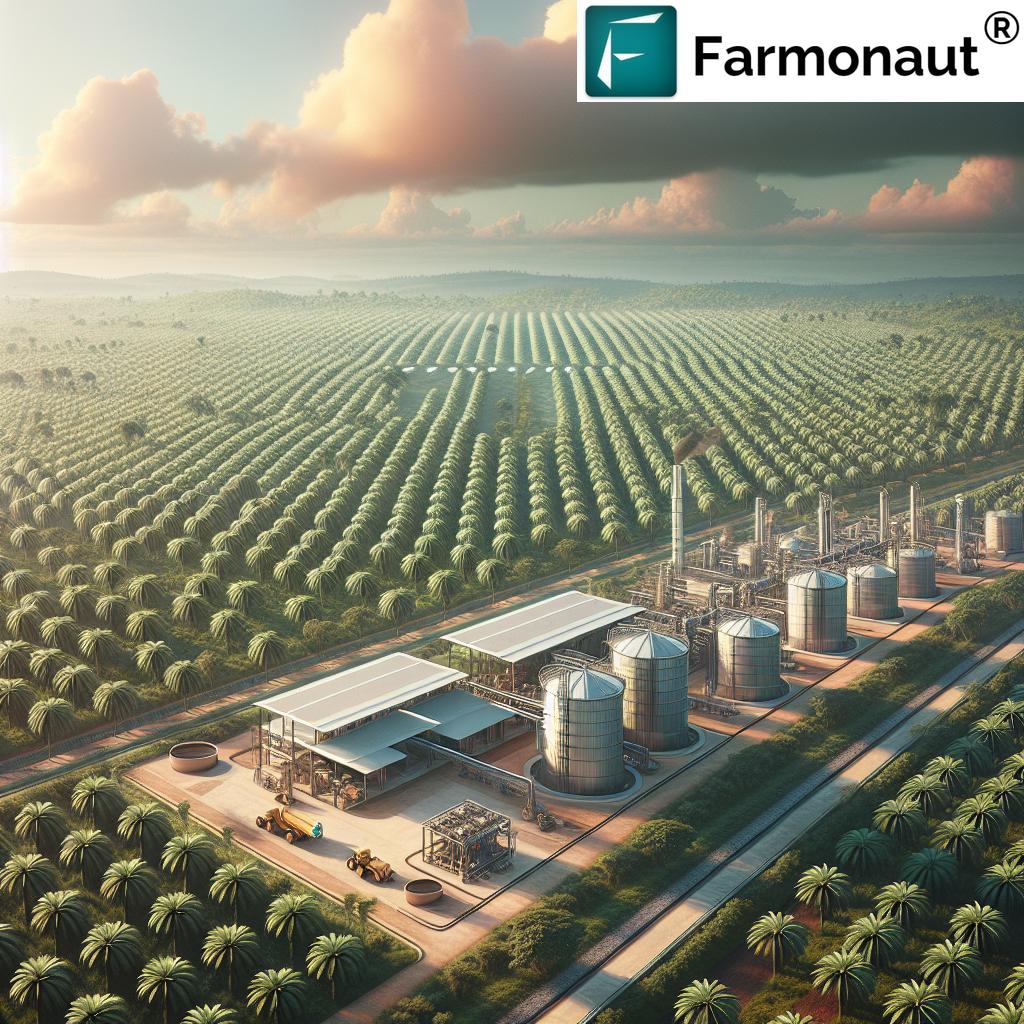Agribusiness Growth: 7 Ghana Growth Capital Strategies
“Ghana’s agribusiness sector is projected to grow by 8% in 2025 with targeted growth capital strategies.”
Summary: Growth Capital for Agribusiness – Driving Ghana’s Agricultural Transformation in 2025
Agriculture remains the backbone of Ghana’s economy, engaging the majority of the population and contributing significantly to GDP. In light of rising global demand for food and calls for sustainability, the role of growth capital for agribusiness in transforming Ghana’s agricultural sector is more critical than ever. As we look towards 2025, unlocking strategic and adequate capital will be pivotal for agribusiness growth—enabling innovation, market expansion, improved infrastructure, and visionary leadership.
Growth capital for agribusiness is not simply financial assistance. It is the strategic fuel that drives established businesses in Ghana to scale operations, invest in technology, and compete locally and internationally. By embracing 7 targeted ghana agribusiness growth strategies, the sector is poised for a substantial leap in value, sustainability, and global competitiveness in 2025.
Understanding Growth Capital in Agribusiness
Growth capital for agribusiness refers to the investment funds provided to established enterprises poised for expansion. Unlike early-stage or start-up capital, it is often used to scale proven business models, expand markets, invest in new technology, and solidify governance.
For the Ghanaian context, this means facilitating the transition from smallholder or subsistence farming towards integrated, commercial ventures that are capable of generating significant employment, increasing revenues, and penetrating both local and international markets.
- Who provides growth capital? – Private equity firms, venture capital, impact investors, development finance institutions, and sometimes commercial banks with sector expertise.
- What does it enable? – Expansion of production facilities, technology adoption, improved market positioning, and resilience to cyclical market risks.
- How is it different? – Unlike seed funding, it is tailored for scaling up established businesses rather than nurturing high-risk start-ups.
The Current Landscape of Agriculture Capital in Ghana – 2025 Outlook
Ghana’s agriculture sector has seen strides in development, underpinned by policy initiatives like Planting for Food and Jobs. Nevertheless, persistent challenges hamper optimal growth:
- Limited access to affordable capital, especially tailored to the cyclical nature and unique cash flows of agriculture.
- Traditional financing models are constrained, often failing to account for market risks and slow technology adoption timelines.
- Infrastructure bottlenecks (inadequate storage, logistics, cold chains) lead to significant post-harvest losses.
- The need for innovative financing products that go beyond conventional lending—think crop-based loans, revenue-sharing, or blended finance mechanisms.
As we track towards 2025, there is renewed focus on agriculture capital that supports not just farm-level production, but also processing, market expansion, and digital solutions.
“Over 60% of Ghanaian agribusinesses plan to expand into new markets using innovative capital approaches by 2025.”
The Role of Agribusiness Growth and Leadership
The key to unlocking transformative agribusiness growth in Ghana lies in leadership that is both agricultural and business-focused. Modern agribusiness leaders recognize that capital must be deployed strategically, enabling:
- Resilient supply chains—Solutions for processing, storage, and logistics that mitigate market shocks and demand fluctuations.
- Climate-smart and sustainable practices—Adopting eco-friendly models to meet global sustainability trends and regulations.
- Digital technology adoption—Leveraging data-driven farm management systems, blockchain, satellite insights, and precision agriculture to enhance productivity.
- Collaboration across the value chain—Fostering partnerships among private investors, government, and development finance institutions for diversified capital pools and risk-sharing.
Efficiency, transparency, and innovation are now driving the Ghana agriculture capital revolution—empowering businesses to grow beyond traditional hurdles.
7 Ghana Agribusiness Growth Capital Strategies for 2025
Below we unpack the seven most impactful ghana agribusiness growth strategies for the coming years—each one guiding the smart deployment of growth capital for agribusiness toward sustainable, market-driven agricultural transformation.
1. Diversification and Value Addition
A key strategy for 2025 is moving beyond the sale of primary agricultural outputs to developing products with higher added value. This means investing in:
- Processing plants for cocoa, cashew, oil palm, and horticultural crops.
- Packing and branding solutions to meet local and export market standards.
- Quality certification systems to access premium international markets.
Growth capital can help Ghanaian agribusinesses acquire equipment and intellectual property that differentiates their products. This reduces vulnerability to raw commodity price shocks and enhances global competitiveness.
For agribusinesses seeking to reduce environmental impact and strengthen sustainability credentials, solutions like carbon footprint monitoring empower better resource management and compliance with climate-focused standards.
2. Technology Integration and Digital Transformation
Technology is a game-changer for Ghana’s agribusiness growth strategies. Targeted capital investments enable:
- Precision agriculture systems (soil sensors, automated irrigation, drones) for increased yields and reduced inputs.
- Mobile finance platforms to streamline payments, track sales, and enhance market access.
- Real-time monitoring through satellite solutions for data-driven decision-making.
Digital transformation is not merely an add-on; it is now a must for competitiveness and transparency, enabling agribusinesses to optimize operations, monitor environmental impact, and meet regulatory standards.
Farmonaut offers fleet management tools and large-scale farm management solutions powered by satellite, AI, and blockchain technologies so enterprises can optimize logistics, improve operational efficiency, and ensure sustainable, data-driven production.
Our advanced remote monitoring and API solutions are designed to support agricultural ventures in Ghana with accurate crop and resource management, helping optimize everything from planting to post-harvest logistics. Developers can find more information on integrating these tools in our API Developer Docs.
3. Capacity Building and Agripreneurship Leadership
Growth capital’s greatest impact comes when paired with capacity building. In Ghana, investment in leadership development and entrepreneurship training:
- Enhances managerial expertise and operational efficiency.
- Improves governance, business planning, and scalability.
- Builds a pipeline of visionary agribusiness leaders who can champion innovation, collaboration, and sustainable practices.
By raising skill levels throughout the agriculture sector, Ghana can unlock a new generation of competitive, export-oriented enterprises, fully prepared for the demands of 2025 and beyond.
For those managing expansive operations, solutions like Farmonaut’s large-scale farm management platform can provide centralized control, ensure traceability, and deliver actionable insights.
4. Infrastructure Development for Market Access & Logistics
Inadequate infrastructure remains a major bottleneck in Ghana’s agricultural value chain. Growth capital for agribusiness should be strategically directed to:
- Develop rural roads, transportation, and cold-chain networks.
- Expand storage and warehousing facilities to reduce post-harvest losses.
- Enable efficient movement of inputs and final products throughout the supply chain.
Well-placed investments in infrastructure improve market linkages, ensure produce quality, and position Ghanaian agribusinesses for export success.
For efficient, sustainable resource use across Ghana’s geography, our crop plantation and forest advisory application delivers real-time satellite insights on soil health, irrigation, and resource allocation.
5. Sustainable and Climate-Smart Agriculture Capital Models
As sustainability becomes a paramount concern for global and local markets, innovation in finance models is essential.
- Climate-smart investments – Allocating capital for drought-tolerant seeds, renewable energy, regenerative practices, and soil improvement.
- Traceability systems – Blockchain solutions that guarantee ecological and social responsibility, securing premium market access.
Farmonaut’s blockchain-based traceability product guarantees transparency, helping Ghanaian exports meet stringent international standards for food origin and environmental compliance. This is crucial for advancing agricultural transformation and export readiness in 2025.
6. Innovative Financing, Products & Partnerships
Ghana’s agribusinesses need access to alternative financing mechanisms that are tailored to production cycles and market risks. These include:
- Crop-lien and revenue-based loans rather than collateral-dependent models.
- Blended finance and risk-sharing instruments bringing together public, private, and development funding.
- Insurance products protecting against weather, pest, or market volatility.
Our satellite-based crop loan and insurance verification reduces fraud and enhances access to finance for Ghanaian farmers and agribusinesses—providing lenders with accurate crop viability and yield estimates.
7. Market Expansion: Export Orientation & New Markets
Ghana’s agribusiness growth strategies must focus on export and skilled penetration of new market segments. This is achievable through:
- Investment in international standard certifications.
- Building partnerships with global buyers, food companies, and logistics providers.
- Marketing and branding for value-added Ghanaian food products and commodities.
Robust market expansion is supported by reliable traceability, sustainability credentials, and direct access to digital platforms that connect producers with consumers worldwide.
Comparative Strategies Impact Table: 7 Ghana Agribusiness Growth Capital Strategies
| Strategy Name | Estimated Investment Required (USD) | Projected Revenue Increase (%) in 2025 | Potential Job Creation | Innovation Level | Market Expansion Potential |
|---|---|---|---|---|---|
| Diversification & Value Addition | $500,000 – $10M | 25–40% | 2,500–10,000 | High | Global exports, local premium markets |
| Technology Integration & Digital Transformation | $250,000 – $5M | 18–30% | 2,000–7,500 | High | National, regional, and international |
| Capacity Building & Leadership | $100,000 – $2M | 12–22% | 4,000–15,000 | Medium | Across value chains |
| Infrastructure Development | $1M – $50M | 30–50% | 10,000–40,000 | Medium | National and export-oriented |
| Sustainable & Climate-Smart Models | $250,000 – $6M | 15–28% | 2,500–9,000 | High | Premium eco-markets, EU, US |
| Innovative Financing | $50,000 – $1M | 12–20% | 1,000–5,000 | Medium | Rural, SME, and start-up markets |
| Market Expansion & Export Orientation | $350,000 – $3M | 20–35% | 1,500–7,500 | Medium | Africa, Europe, Middle East |
Farmonaut Solutions Supporting Ghana’s Agribusiness Growth Capital Strategies
Modern growth capital for agribusiness demands innovative solutions that guarantee transparency, optimize resource use, and ensure sustainability. At Farmonaut, we help enable Ghana’s agricultural transformation via:
- Satellite-based monitoring for crop health, yield prediction, and environmental impact analysis, accessible via web, Android, or iOS apps. (See buttons below to download and start optimizing your operations!)
- AI-driven advisory systems for real-time strategies on farm management, climate risk assessment, and sustainability transitions.
- Blockchain-based traceability guaranteeing product authenticity for both local and export markets. Learn more about this on our Traceability page.
- Fleet and machinery resource management to streamline logistics and reduce operational costs. Discover our solutions at Fleet Management.
- Environmental impact measurement tools for carbon footprint analysis and sustainable certifications. Details can be found at Carbon Footprinting.
- APIs to integrate satellite data directly within your agri-management systems. Start integrating via our API and consult our Developer Docs.
- Financial institution partnerships offering satellite-based verification for crop loans and insurance—read more at our Crop Loan & Insurance solution.
The Road Ahead for Growth Capital in Ghana’s Agribusiness Sector
The journey to agricultural transformation in Ghana is just beginning. Growth capital for agribusiness—if effectively harnessed via the proven ghana agribusiness growth strategies above—will power:
- A surge in employment and rural development.
- A thriving, export-oriented sector that meets global sustainability requirements.
- Robust supply chains, resilient to shocks yet agile for innovation and market shifts.
- Increased GDP contributions and higher-value, branded Ghanaian food products in both local and international markets.
A multi-faceted approach remains essential. Policymakers must create enabling regulations; financial institutions must innovate; leaders must champion transparency, technology, digital solutions, and capacity building.
At Farmonaut, we are committed to supporting Ghana’s agribusinesses—providing affordable, real-time insights and management solutions tailored for the future of African food security, sustainability, and prosperity.
Subscription Plans for Ghanaian Agribusinesses
Frequently Asked Questions (FAQs) – Growth Capital for Agribusiness in Ghana (2025)
What is growth capital and how does it differ from other types of funding in Ghana agribusiness?
Growth capital refers to investment funds provided to established businesses poised for expansion. It typically targets agribusinesses with proven models seeking to scale up, invest in new technologies, or access new markets. In contrast, seed capital is for startups, and traditional lending may not fit the agricultural sector’s unique risks and timelines.
How can growth capital strategies help Ghanaian agribusinesses expand internationally?
By funding value addition, supporting certification, and enabling digital traceability, growth capital helps businesses meet export market requirements, thereby accessing new international markets and increasing Ghanaian agri-exports.
Which technologies are most impactful for Ghana’s agriculture sector growth?
Technologies such as satellite crop monitoring, AI-driven farm management, blockchain traceability, renewable energy systems, and digital payment platforms are central to driving productivity, ensuring sustainability, and streamlining operations.
What role do financial institutions and digital providers play in agribusiness capital in Ghana?
Financial institutions can develop tailored products (revenue-based loans, crop insurance) while digital providers (like Farmonaut) offer verification, monitoring, and traceability to improve access and reduce risks for all market participants.
How can Farmonaut help my agribusiness grow in 2025 and beyond?
Farmonaut provides affordable satellite-driven insights, AI advisory, blockchain traceability, fleet and resource management tailored for agribusinesses seeking to optimize operations, enter new markets, and comply with sustainability standards.
Where can I learn more or integrate Farmonaut’s solutions in my operations?
Access our platform via web, Android, or iOS apps, consult the API Developer Docs, or reach out for custom support. See solution links throughout this post for detailed modules.
Conclusion
Deploying growth capital for agribusiness is the key to transforming Ghana’s agriculture sector in 2025 and beyond. By focusing on innovation, infrastructure, value addition, and sustainability, Ghana’s agribusinesses can achieve significant growth, ensure food security, create jobs, and compete globally.
The right ghana agribusiness growth strategies—combined with digital transformation tools like those from Farmonaut—will unlock the sector’s full potential. Let us commit to fostering a climate where capital, technology, and visionary leadership converge for enduring agricultural prosperity in Ghana.













